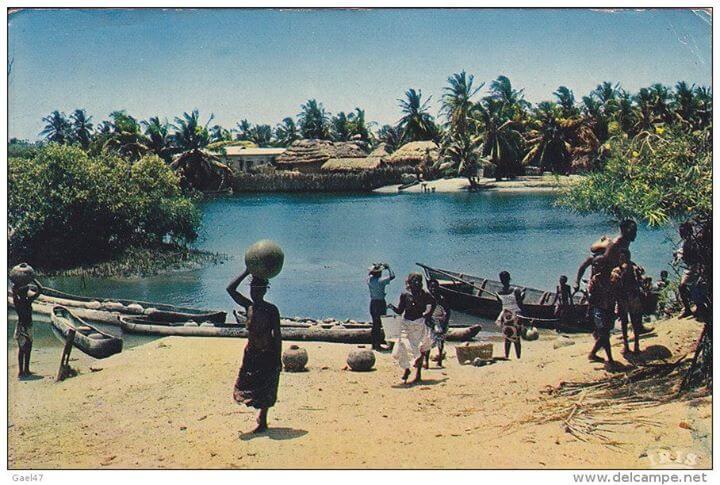 The picture above captioned as A Niger Delta Village In the 1960s (Before Oil) has sparked much discussion on online forums in Nigeria. While there have been debates about its veracity, what is interesting is the way that it provides a catalyst for people’s memories about the region before oil.
The picture above captioned as A Niger Delta Village In the 1960s (Before Oil) has sparked much discussion on online forums in Nigeria. While there have been debates about its veracity, what is interesting is the way that it provides a catalyst for people’s memories about the region before oil.
Here is one comment that I find particularly moving and evocative:
As a young Niger Delta boy even in the early 70s such good looking natural environment existed in the Niger Delta.
1. I remembered going to pick periwinkles in the swarms meeting blue coloured water that is reflecting the blue skies in a hot afternoon like that.
2. I remembered especially on a rainy day and especially at night going to creeks with only Calabash and bare hands coming home with good catch of fishes
3. I remembered using such clean (so to say) sea waters tasting salty to soak my garri padling my canoe while returning from Kaa or Iyanaba market
4. I remembered not bothering about tap water every morning to bath to school but jumping into this river like you do in this modern day swimming pole, wash mysely come out robe high scenting pomade and off to school
5. I remembered having my canoe capsided on the sea and I swarm to safety without any poluted water with oil to choke me
6. But I also remembered afterwards on Sobiekiri river many canoes with people on the water, someone mistakenly threw a cigaret stub on the water and it caught fire and so many people were burnt to dead including good swimmers who jumped into the river to see if they could dive past the burning oil on the water
Oil was first found in Nigeria by Shell in the 1950s at Oloibiri. Since then, the natural environmental, home to 31 million people and one of the most important wetlands globally, has been devastated by oil pollution, destroying people’s livelihoods and health. It is now the 2nd anniversary of an in depth report by UNEP documenting the scale of the pollution in one region. The report concluded that it will take 30 years and $1 billion of start-up finance to clean up Ogoniland but since then local activists and communities say that Shell has not taken any serious steps to begin the clean up operation.

Given that the average life expectancy in Nigeria is 52 years, soon there will be no people in these communities that remember life before oil. Without a collective memory about the former beauty of the Niger Delta is it possible to imagine a future where the region is pristine again?
The photograph also confounds cliched and prejudiced presentations of Africa. From Joseph Conrad’s Heart of Darkness, to Live Aid, to Kony2012 the continent has been portrayed as innately troubled, violent and as needing to be saved by the West. Speaking to activists and academics from the Niger Delta, I have heard them talk of the region as a paradise before the oil curse. I have to admit I never quite understood it until I saw this photograph.
Whether this photograph is real or not seems less important than the possibility of hope for the future that it evokes – a return to Paradise.